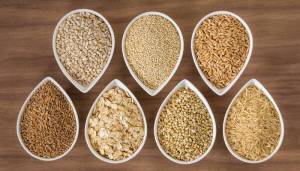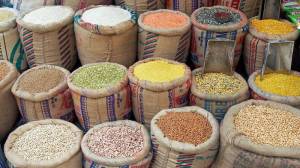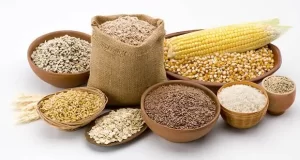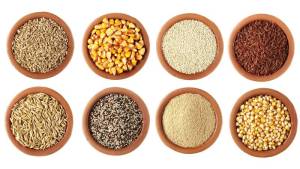Introduction
In the vast agricultural industry, the proper management and distribution of food grains play a crucial role in ensuring food security and sustainability. Among the key professionals involved in this process are food grain supervisors. This article explores the responsibilities, qualifications, challenges, and career prospects of food grain supervisor, shedding light on their essential role in the agricultural sector.
What is a Food Grain Supervisor?
A food grain supervisor is an individual responsible for overseeing the storage, handling, quality control, and distribution of food grains. They work in various settings, such as grain elevators, food processing plants, and warehouses. Their primary objective is to ensure that food grains meet quality standards and maintain their nutritional value throughout the supply chain.
Roles and Responsibilities of a Food Grain Supervisor
Food grain supervisors have a diverse range of responsibilities to ensure the smooth operation of food grain management. Some of their key duties include:
- Quality Control: Inspecting food grains for quality, including assessing moisture levels, pest infestations, and contamination.
- Storage Management: Overseeing the proper storage conditions, such as temperature and humidity control, to prevent spoilage and maintain grain quality.
- Inventory Management: Monitoring and recording the quantity and quality of food grains in storage facilities.
- Grain Handling: Supervising the loading and unloading of food grains, ensuring proper procedures are followed to prevent damage.
- Distribution: Coordinating the transportation and distribution of food grains to ensure timely delivery to customers or processing facilities.
- Documentation: Maintaining accurate records of inventory, inspections, and grain movements for regulatory compliance and traceability purposes.
- Team Management: Leading a team of workers involved in grain operations, providing guidance, and ensuring safety protocols are followed.
Qualifications and Skills Required
To become a food grain supervisor, certain qualifications and skills are necessary. These may include:
- Education: A high school diploma or equivalent is typically required, but a bachelor’s degree in agriculture, food science, or a related field can be advantageous.
- Knowledge: Strong understanding of food grain characteristics, quality standards, storage techniques, and pest management.
- Analytical Skills: Ability to conduct quality assessments, analyze data, and make informed decisions.
- Communication Skills: Effective verbal and written communication skills to interact with team members, suppliers, and customers.
- Attention to Detail: A keen eye for identifying grain defects, and potential hazards, and maintaining accurate records.
- Problem-Solving: Capability to troubleshoot issues that may arise during grain operations and implement appropriate solutions.
- Leadership: Skills to lead and motivate a team, ensuring smooth workflow and adherence to safety protocols.
Importance of Food Grain Supervisors in the Agricultural Industry
Food grain supervisors play a vital role in maintaining the quality and safety of food grains throughout the supply chain. Their contributions are significant for several reasons:
- Quality Assurance: Food grain supervisors ensure that only high-quality grains are distributed, meeting regulatory standards and customer expectations.
- Food Safety: By implementing strict quality control measures, supervisors help prevent the distribution of contaminated or unsafe food grains.
- Sustainability: Effective grain management practices reduce spoilage and waste, contributing to sustainable agricultural operations.
- Economic Impact: By maintaining grain quality, supervisors help protect the value of agricultural commodities, benefiting farmers and the overall economy.
- Consumer Confidence: The role of supervisors in ensuring grain quality and safety enhances consumer confidence in the food supply.
Challenges Faced by Food Grain Supervisors
Food grain supervisors encounter various challenges in their daily work. Some common challenges include:
- Pest Management: Protecting stored grains from pests, such as insects and rodents, requires effective pest control strategies.
- Weather Conditions: Extreme weather events, like floods or excessive humidity, can impact grain quality and require proactive measures.
- Regulatory Compliance: Adhering to government regulations and food safety standards adds complexity to grain management processes.
- Technological Advancements: Keeping up with technological advancements, such as grain monitoring systems, requires continuous learning and adaptation.
- Supply Chain Logistics: Coordinating grain movements across the supply chain and ensuring timely delivery can be logistically challenging.
How to Become a Food Grain Supervisor
If you aspire to become a food grain supervisor, there are several steps you can take to pursue this career:
- Education and Training: Obtain a high school diploma or equivalent. Pursuing a degree or certification in agriculture, food science, or a related field can provide a competitive edge.
- Gain Experience: Seek internships, part-time jobs, or volunteer opportunities in grain-related roles to gain practical experience.
- Develop Skills: Focus on developing skills such as quality control, inventory management, and team leadership through relevant coursework or on-the-job training.
- Networking: Build connections within the agricultural industry through professional organizations, conferences, and industry events.
- Certification: Consider obtaining certifications specific to grain management or related areas to enhance your credentials.
Training and Certification Programs
Various training and certification programs are available to further enhance your knowledge and skills as a food grain supervisor. Some notable programs include:
- Certified Grain Handler (CGH): Offered by the Grain Elevator and Processing Society (GEAPS), this certification focuses on grain handling, storage, and quality control.
- Certified Manager of Quality/Organic Grains (CMQ/O): Provided by the American Society of Agronomy (ASA), this certification emphasizes quality management principles specific to organic grains.
- Food Safety Modernization Act (FSMA) Training: Designed to ensure compliance with the FSMA regulations, this training covers topics like hazard analysis, preventive controls, and record-keeping.
Job Prospects and Career Growth
The demand for food grain supervisors remains steady, driven by the continuous need for efficient grain management in the agricultural industry. Job prospects for qualified supervisors are expected to be favorable, particularly in grain-producing regions.
As you gain experience and demonstrate strong leadership and technical skills, opportunities for career growth may arise, such as senior supervisory roles or management positions within grain organizations or agricultural cooperatives.
The Future of Food Grain Supervision
As the agricultural industry continues to evolve, the role of food grain supervisors is expected to undergo certain changes. The incorporation of advanced technologies, such as automated grain monitoring systems and data analytics, will likely enhance efficiency and accuracy in grain management processes.
Additionally, the increasing focus on sustainability and food traceability will require supervisors to stay updated on evolving regulations and best practices.
Tips for Success as a Food Grain Supervisor
To excel as a food grain supervisor, consider the following tips:
- Continuous Learning: Stay updated on industry trends, technological advancements, and best practices through professional development opportunities and networking.
- Effective Communication: Develop strong communication skills to interact with team members, stakeholders, and regulatory authorities.
- Attention to Detail: Pay close attention to grain quality, storage conditions, and regulatory requirements to ensure compliance and maintain high standards.
- Adaptability: Embrace technological advancements and be open to change, as the industry evolves.
- Leadership Skills: Develop leadership qualities to effectively manage teams, foster a positive work culture, and drive operational excellence.
FAQ
Is a degree in agriculture necessary to become a food grain supervisor?
While a degree in agriculture can be beneficial, it is not always a requirement. A high school diploma or equivalent, coupled with relevant experience and skills, can also pave the way for a career as a food grain supervisor.
What are some common grain defects that supervisors look for?
Food grain supervisors are trained to identify various defects, such as mold, insect infestations, foreign material contamination, and abnormal odors. Detecting these defects is crucial to maintaining grain quality and safety.
Are there any risks associated with working as a food grain supervisor?
Like any occupation, there are certain risks involved, such as exposure to dust, allergens, and hazardous machinery. However, proper safety protocols, personal protective equipment, and training minimize these risks.
Can food grain supervisors work in different countries?
Yes, food grain supervisors are needed worldwide, as grain management is essential for food production and security globally. Job opportunities may vary based on regional agricultural practices and grain industry development.
Conclusion
Food grain supervisors play a crucial role in ensuring the quality, safety, and efficient management of food grains within the agricultural industry. Their responsibilities span from quality control to storage management, distribution, and documentation. With the right qualifications, skills, and dedication, individuals can embark on a rewarding career as food grain supervisors, contributing to food security, sustainability, and consumer confidence in the global food supply.












